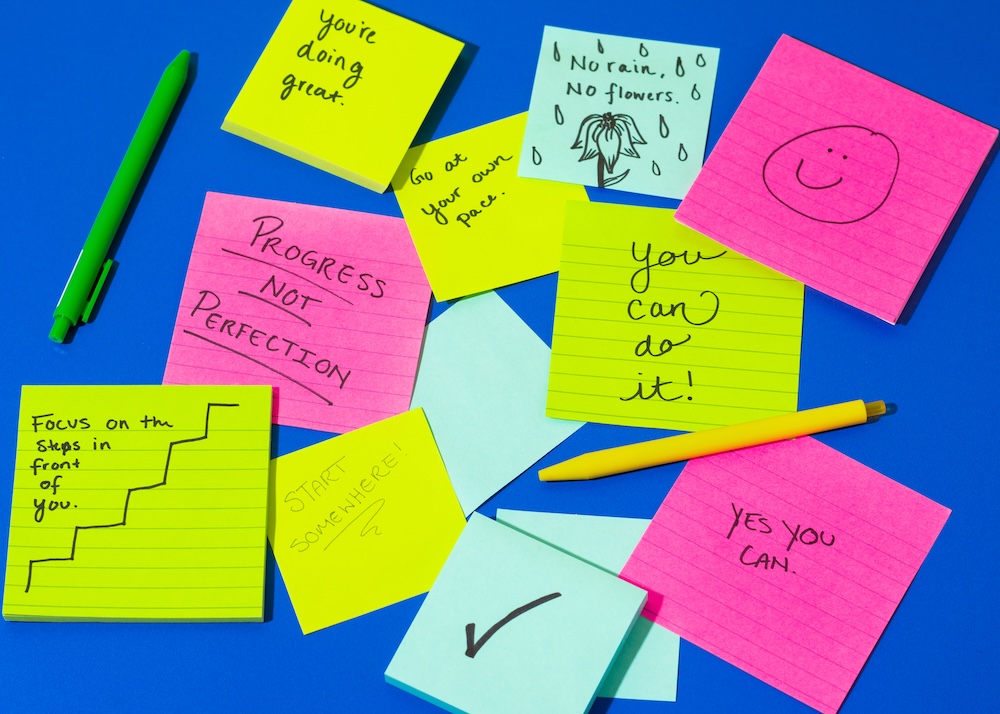How to build better habits so your resolutions don’t fail

New year, new me, new habits | Photo by Katelyn Perry on Unsplash+
So you’ve decided on your resolutions for the new year. How’s the first week going? Don’t worry if there hasn’t been much progress yet. These things take time. But the road ahead to a better you doesn’t have to be *that* difficult.
As we can all probably tell, most of our resolutions need us to form better habits. According to Harvard Business Review, the core of building habits is behavior. But for a behavior (say, to drink more water) to become a habit, it first has to be a routine.
The repetitive nature of routines will ingrain the behavior in our system until it becomes so effortless and easy to become a habit. (Like brushing our teeth before bed!)
So to truly make the most of the intentions and resolutions you’ve set at the beginning of the year, here are tips to turn those into habits.
Understand your intent
You’ve probably heard of the idea of “knowing your why,” which helps in keeping you motivated or inspired. The same principle works for forming habits. When you know why you want to do something—and do it regularly—you’ll likely be more motivated to do it.
The key is to make things effortless for yourself. The less resistance, the more likely the habit will stick
Let’s say your “why” or your intention is to be healthy and hydrated so that you don’t get sick. The habit you’d like to form then is to drink water. To turn that into a routine, maybe you can set alarms (or “nudges,” which we’ll talk more of later), or even set a glass of water or a water bottle on your nightstand, where you can easily reach for it the moment you wake up (instead of reaching for your phone!)
The key is to make things effortless for yourself. The less resistance, the more likely the habit will stick.
Clear the path and make it easy
Speaking of less resistance, knowing the potential blocks to the habit or behavior you want to build will also help. What could possibly hinder you from achieving the goal? Is it too tiring? Does it take too much time?
Once you’ve figured out the blockages, try to find a workaround. If the problem is that you get too tired to, say, do a full workout routine, try to start with easier, bite-sized workouts. Instead of jumping right into 30 repetitions, try with just five. Once you form the “habit” of doing five reps of a workout, work your way up.
If dwindling motivation is your problem, you may also consider getting friends, family, or other allies to support you. Having people you trust know and remind you of your goals can help motivate you, and keep you accountable.
If dwindling motivation is your problem, you may also consider getting friends, family, or other allies to support you. Having people you trust know and remind you of your goals can help motivate you, and keep you accountable
Stack your habits
Many professionals who study behavior and habits recommend the concept of stacking or bundling. This is to pair or tie your new habit or behavior with an existing one. Even better if the activity you stack with the habit you’re trying to form is something you really want or enjoy doing. Think of it as positive reinforcement.
Here’s a personal example. I started listening to audiobook summaries because I wanted to learn more. To make the habit stick, I decided I would listen to an audiobook every time I made coffee—this was already an existing habit, which I “practice” after eating lunch every day. I know for a fact (after having done it so many times) that it takes me 15 minutes to prepare my coffee and clean up my coffee equipment—and that’s just enough time for one full book summary.
The habit—listening to audiobooks—is stacked with another habit/positive activity—coffee—making it something I’m likely to continue in the long run.
According to studies, the average number of days to form a habit is actually 66 days
Use nudges or reminders
Think of these like “notifications” on your phone. Nudges, when it comes to habits, can be reminders—in any shape or form—that will alert or nudge you about your goal. If, say, your goal is to sit less and stretch more, you can put a note near your computer screen asking you, “Did you stretch?” Every time your eyes find that note, make sure to take a minute to stand or just move your limbs.
Others (myself included) go as far as setting alarms on phones. It may or may not work for you though (just be sure you don’t hit snooze). Whichever method of reminder you opt for, you also have to make sure you stick to it.
Ultimately, each person’s habit-forming methods will differ. What works for me might not work for you, and vice versa. Contrary to belief, there isn’t any fixed number of days for a habit to form. (So no, it doesn’t take 21 days. The very author of “The Power of Habit,” Charles Duhigg said this to the Harvard Business Review.)
According to studies, the average number of days to form a habit is actually 66 days. And again, that’s just the average. Some may take faster or longer than others. And that is okay. What matters is you try, and sooner or later, you may just be surprised that this goal is now more than just a habit—it’s second nature.

